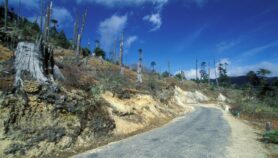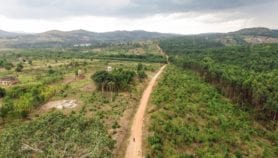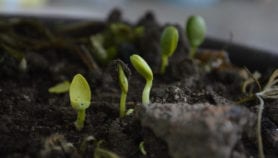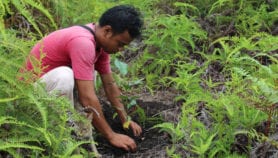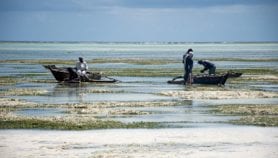By: David Dickson
Send to a friend
The details you provide on this page will not be used to send unsolicited email, and will not be sold to a 3rd party. See privacy policy.
New ways are needed of linking science and technology to the goals of sustainable development. But inventing a new field of 'sustainability science' is not necessarily the answer.
With less than a month left until the opening of the World Summit on Sustainable Development (WSSD) in Johannesburg, most observers remain pessimistic about the outcome of the event. The likelihood of any significant new political agreement on how to link economic and sustainable development to environmental protection emerging from the meeting looks slim. Most hopes that remain for the summit are focussed on pragmatic agreements for future activities that may be reached on the fringes of the official negotiations.
One area in which these hopes are pinned is the application of science and technology to sustainable development — the focus, for example, of the Science Forum that will take place as a parallel event to the main meeting. And within this area, there has already been talk in some circles of using the WSSD as a platform to launch a new field of inquiry, known as 'sustainability science', that would promote interdisciplinary research into the interactions between human behaviour and the natural world.
Scientific successes
The 'sustainability science' proposal has considerable merit. The preparatory process for WSSD has already highlighted the relative lack of progress since the Rio Earth Summit in 1992 on the goals outlined in the plan of action adopted at that meeting, Agenda 21. And one of the reasons for this has been a lack of adequate scientific understanding of the full complexity of the environmental challenges that the world faces, from preserving biodiversity to reducing anthropogenic climate change.
But the picture has not been entirely gloomy. Climate scientists, for example, have developed increasingly sophisticated models of the interaction between climate variability and social activity that have significantly improved our understanding of both the problems that we face, and the impact of future policy choices. Similarly, biologists and ecologists have used modelling techniques to identify regions of the world where biodiversity is under greatest threat.
In such circumstances, there is a powerful logic in favour of drawing such efforts together into a single field of inquiry, particularly one that would extend the scope of global models to embrace the social, as well as natural, sciences. Over the past few years, a group of researchers from a variety of disciplines have christened this field 'sustainability science'. In a key article in the journal Science, published in 2000, they identified the emergence of this field as resulting from "various scientific efforts to promote the goals of a sustainability transition — meeting human needs while preserving the life support systems of the earth." (For a longer version of this paper, see: Sustainability Science)
Open questions
There are, however, a number of important questions about whether a new field of inquiry is what the world needs at the present time. Firstly, the way in which 'sustainability science' tends to be characterised — namely as an essentially multidisciplinary endeavour bridging the natural and social sciences — appears to exclude many of the conventional disciplines, from plant genetics to immunology, that have much to offer the promotion of sustainable development.
Proponents of the concept point out that this is far from their intention, and that the proposed new field would be all-embracing; both agricultural and health research are recognised as essential components. But where these disciplines are included, the emphasis tends to be those aspects that link directly into the concerns of model-builders (such as the impact of climate change on agricultural production or human health) rather than a desire to promote the disciplines on their own terms.
The second objection to the concept of a 'sustainability science' is that it implies that the full complexity of the interactions between human society and the natural environment can be embraced within a single sphere of intellectual endeavour. Any such ambitious claim, however, courts the danger of sharing the fate of all previous efforts to define a "science of everything".
Dangers of exclusivity
Thirdly, by identifying the principle need as a new field of scientific inquiry — rather than new ways of doing conventional science — the proponents of 'sustainability science' are in danger of encouraging new forms of exclusivity. In other words, since full participation in any science can only be experienced by those who share its guiding principles and technical language, others who lack either of these prerequisites are in danger of being left marginalised. The real need is to open up new avenues for participation, not close these off.
Finally, there is the related threat, inherent in the creation of any academic discipline, that its supporters will be seen as engaged in building and promoting a new intellectual power-base. Such an activity is not always inappropriate, or even unjustified; the early founders of molecular biology or genomics, for example, engaged in very similar activities. But it is a path that needs to be trodden with care to prevent such institution-building becoming a goal in itself.
On the wane?
Fortunately, there are signs that, partly in response to the above concerns, the initial enthusiasm to create a 'sustainability science' has begun to wane. Certainly a statement agreed at a meeting in Mexico City in April, summarising discussions that had taken place in different parts of the world over the previous two years, has a very different tone from some of the initial statements that launched the 'sustainability science' movement. Indeed the phrase itself is not mentioned as such; rather the emphasis of the consensus reached at Mexico was on the more realistic need to promote forms of science and technology "directed to solutions to sustainability problems" (see Science and Technology for Sustainable Development).
Furthermore, the Mexico discussion also emphasised that an essential dimension in future discussions will be how to include 'stakeholders' — those with a direct interest in the outcome of any research programme — in the initial formulation of such a programme. Indeed, one of the main conclusions was that research projects require local-scale negotiations between stakeholders and researchers.
Nevertheless, the idea of a new field of 'sustainability science' lingers on, and is likely to find frequent expression during the discussions in Johannesburg. Those tempted to use this concept must ensure that they have adequate responses to the objections outlined above. The ultimate goal — of ensuring that the efforts of the scientific research community are directed towards the most pressing needs facing humanity — is one that is widely shared. This is most likely to be achieved, however, by enhancing existing efforts in this direction, designing new institutional arrangements to increase the effectiveness of these efforts, and providing adequate resources for them to succeed. It does not necessarily require a new academic discipline, however catchy its title.
© SciDev.Net 2002





